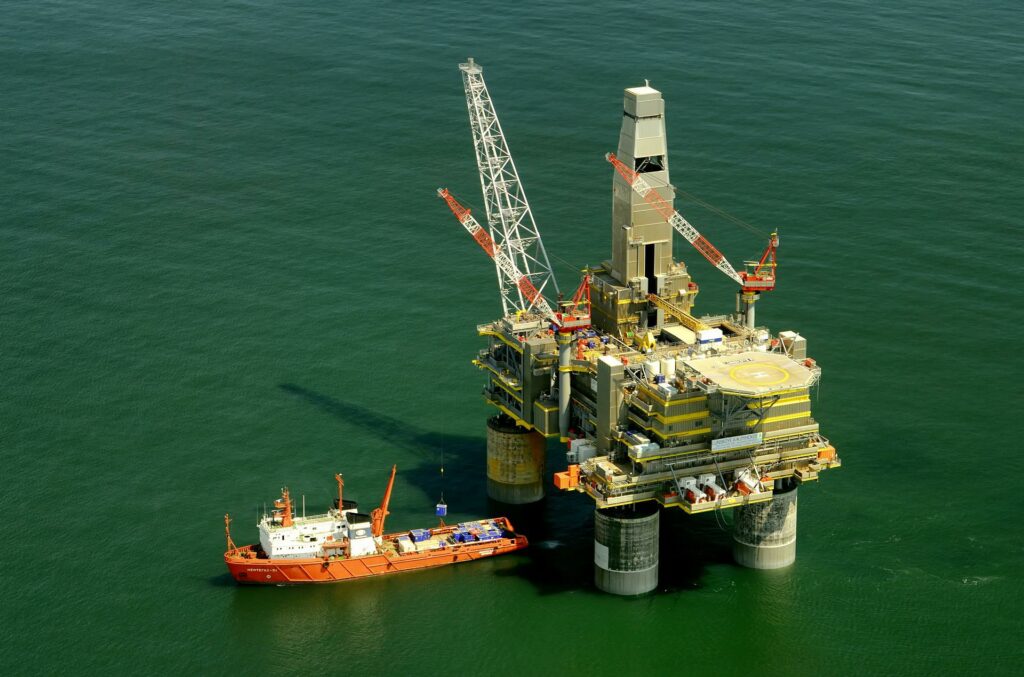After deciding last week to stop buying coal from Russia, European governments will begin a debate this week on a more ambitious goal. Moving away from Russian oil. European Union lawmakers in Brussels are trying to make an oil embargo the focus of the next economic measures against Russia over its invasion of Ukraine.
However, the debate is unlikely to be resolved soon. Germany continues to oppose the idea of an oil ban. In addition, the MEPs are still rather cautious at the moment, as the government in France is currently being re-elected.
Foreign ministers of EU countries discuss oil sanctions
EU foreign affairs envoy Josep Borrell said during a meeting with Ukrainian President Volodymyr Selenskyj in Kiev that he will put oil sanctions on the agenda.
“The sanctions we agreed on … are causing a lot of damage to the Russian economy, but more must follow,” Mr. Borrell said in Kiev.
But quick decisions on oil sanctions face major political obstacles. With EU member states divided on the issue, Brussels MEPs say no decisions will be forthcoming. The presentation of concrete proposals could take more weeks.

Germany opposes oil embargo
Germany, Europe’s largest economy, is leading the opposition to sanctioning imports of Russian oil or gas. Thus far, Germany has resisted calls from Eastern European countries such as Poland for an oil embargo.
EU parliamentarians are considering ideas on what a gradual oil embargo might entail. A tariff on Russian oil imports to reduce demand is being discussed. But also the forced deposit of part of the oil payments into an escrow account.
The EU has already announced plans to reduce its Russian energy imports over time. Pressure for faster energy sanctions is mounting as Ukrainian officials accuse Russian forces of atrocities. To this end, the civilian death toll from the Russian invasion is rising daily.
Import stop for Russian coal already decided
The EU recently unveiled its fifth set of economic sanctions against Russia. The latest package includes a complete phase-out of EU purchases of Russian coal by August.
However, a large part of the EU still wants to impose sanctions on the two biggest trade deals with Russia. The purchase of oil and gas. These exports have cushioned the impact of other sanctions on the Russian economy. Oil and gas are a major source of revenue for the Russian government’s budget, including its military spending.
According to Ben McWilliams, an analyst at the Brussels-based think tank Bruegel, the EU imported energy from Russia for around 800 million euros a day in November. Namely, 400 million euros for gas, 380 million euros for oil and 20 million euros for coal. In November, the EU bought 2.7 million barrels per day of Russian crude oil. In addition, there were 1.1 million barrels per day of other oil products.
Russia, the world’s third-largest oil producer, supplied about a quarter of the EU’s oil imports in the first half of 2021, according to the EU’s statistics agency. That accounted for about half of Russia’s oil exports.
Many EU states, including Germany and Italy, are even more dependent on Russian gas. That is why they see sanctions against oil as more practicable.
Germany particularly hesitant on oil enbrgo
Germany, Europe’s largest economy, has been particularly hesitant despite mounting international criticism of Berlin’s stance. At the same time, Germany is concerned not to risk damage to its industries from sanctions on Russian oil or gas. Germany, has announced that it could halve its Russian oil imports by this summer. However, it would take until the end of this year for a complete import freeze. The French presidential election could delay any detailed plans until after the final round on April 24. President Emmanuel Macron has expressed support for an oil embargo. His Finance Minister Lemaire has said it could take several weeks to agree within the EU on how to proceed.
Hungary’s newly re-elected Prime Minister Viktor Orban has repeatedly said his government will oppose sanctions that undermine the country’s energy security. A senior European parliamentarian said Budapest appeared to have “undermined” its opposition to energy sanctions since the April 3 elections. Austria, too, was clearly hesitant to impose tougher energy sanctions.
According to some diplomats, some southern European countries are also reluctant to support the oil and gas embargoes. This is despite the fact that they have signaled that they would not block the measures if a consensus were to emerge.
Poland and the Baltic states are in the opposite camp. Lithuania announced last week that it had stopped all oil and gas purchases from Russia, despite its traditionally strong dependence on Russian energy supplies.
Opposition to an oil embargo partly reflects governments’ fear of a voter backlash against high energy prices. Prices for fuel and electricity were already rising before Russia’s attack on Ukraine.
EU seeks replacement suppliers for gas
The EU has pledged to increase renewable energy production to phase out Russian energy imports. It has also been talking to Middle Eastern oil and gas producers and Asian energy buyers in recent weeks to increase and redirect energy supplies to Europe. German Economics Minister Robert Habeck traveled to Qatar and the United Arab Emirates in late March to seek new gas supplies.
The U.S. has also pledged to increase supplies of liquefied natural gas to Europe to ease energy shortages and aims to supply 50 billion cubic meters of LNG to Europe annually in the coming years, or about one-third of the gas the EU receives from Russia.
